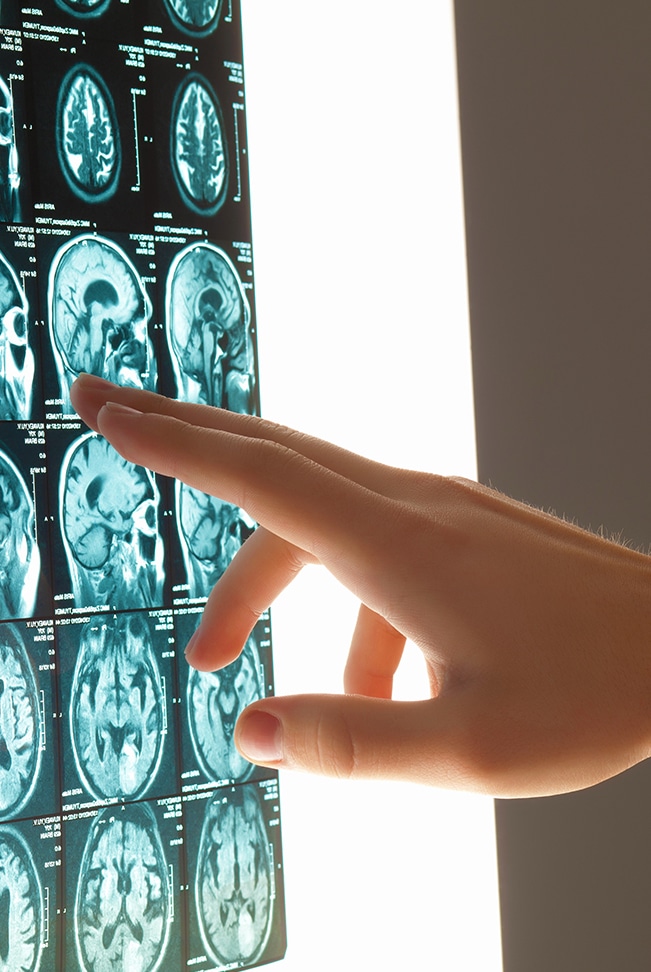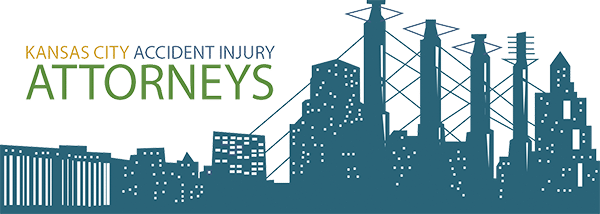
Kansas City Traumatic Brain Injury Lawyer in Missouri and Kansas
Helping victims of brain injury obtain all the compensation they deserve
While any major injury can cause undue stress for a family, brain injuries are among the most difficult to endure. The victim of a traumatic brain injury (TBI) often needs expensive medical treatments and may be unable to work for months or longer. Some patients can't return to their jobs at all. If this is the situation for you or a loved one, you may be entitled to compensation from the individual or business responsible for causing the accident and resulting injury.
At Kansas City Accident Injury Attorneys, our team of experienced brain injury lawyers is dedicated to protecting the rights of innocent victims throughout Kansas and Missouri. We're ready to help you and your family obtain the justice and compensation you deserve. We work with neurosurgeons, neurologists, neuropsychologists, concussion specialists and other types of physical and emotional therapists. Our legal team obtained a three million dollar settlement for a client who suffered a TBI, with decreased functioning in nine cognitive areas, when she was struck by a drunk driver. We employed a traffic reconstruction expert to show the driver’s negligence and multiple medical experts, lifecare planner, vocational consultant, and economic loss expert to show the extent of the injuries and damages.
Do I have a case?
Call now or fill out a form to receive a free confidential consultation
How common are traumatic brain injuries?
According to the Centers for Disease Control and Prevention, in 2017:
- 224,000 people were required to be hospitalized for a TBI
- 61,000 people died from a TBI
- Falls accounted for nearly half of all traumatic brain injuries
- Vehicle accidents accounted for nearly ¼ of all traumatic brain injuries
- Men suffered a much higher proportion of TBIs than women
- Seniors aged 75 and older suffered the highest proportion of TBIs
What types of accidents cause traumatic brain injuries?
Brain injuries are caused by forces to a victim’s head and skull. Some of the many types of TBI accident cases our Missouri and Kansas lawyers handle include:
- Car accidents
- Truck crashes
- Motorcycle wrecks
- Slip and falls
- Construction site accidents
- Medical malpractice
- Product defects
- Sports accidents
We work to hold drivers, vehicle owners, construction site owners, manufacturers, property owners, doctors, and others liable for causing you or a loved one to suffer a TBI.
Brain injuries affect families in addition to patients. Families lose the same companionship they enjoyed with their loved ones before the accident. Many spouses, parents, and children also become caretakers for their injured family member, which is an emotionally and physically taxing job.
What are the types of traumatic brain injuries?
Everyone’s response to a TBI is different. Some victims may suffer an immediate concussion or injury, requiring emergency care. Other victims may not realize they need medical attention until their symptoms become noticeable to them or their loved ones.
According to the prestigious Johns Hopkins University, “the damage can be focal (confined to one area of the brain) or diffuse (happens in more than one area of the brain).” Brain injuries are categorized from mild to severe.
Primary brain injury refers to the initial force or impact to the brain. Secondary brain injury refers to any changes to the brain that occur hours or days after the initial impact – due to “cellular, chemical, tissue, or blood vessel changes in the brain that contribute to further destruction of brain tissue.”
What are the physical symptoms of traumatic brain injury?
For many TBI victims, the initial symptoms are physical ones. The Mayo Clinic lists the following physical symptoms of TBI, based on severity. Please note that symptoms may be different in small children, especially those who are unable to articulate their feelings.
Mild TBI
- Headache
- Nausea or vomiting
- Fatigue or drowsiness
- Problems with speech
- Dizziness or loss of balance
Moderate to Severe TBI
- Loss of consciousness from several minutes to hours
- Persistent headache or headache that worsens
- Repeated vomiting or nausea
- Convulsions or seizures
- Dilation of one or both pupils of the eyes
- Clear fluids draining from the nose or ears
- Inability to awaken from sleep
- Weakness or numbness in fingers and toes
- Loss of coordination
TBI in Children
- Change in eating or nursing habits
- Unusual or easy irritability
- Persistent crying and inability to be consoled
- Change in ability to pay attention
- Change in sleep habits
- Seizures
- Sad or depressed mood
- Drowsiness
- Loss of interest in favorite toys or activities
Other symptoms may include double vision or loss of bladder control.
What are the complications associated with traumatic brain injury?
TBI patients often suffer cognitive difficulties in addition to physical and emotional complications. Some injuries may resolve with timely and proper treatment. Other conditions may be permanent and require a lifetime of care. Johns Hopkins notes some of the complications associated with brain injury:
Cognitive injuries
- Coma
- A state of confusion
- A shortened attention span
- Difficulty remembering things
- An inability to solve problems
- Judgment difficulties
- Loss of space and time
- Not being able to process directions or commands
- A reduced self-awareness
- A diminished awareness of others
Motor difficulties
- Poor balance
- Lack of endurance
- Paralysis
- Spasticity (tightening and shortening of the muscles)
- Tremors
- Difficulty getting started
- Difficulty swallowing
- Lack of coordination
Perceptual or sensory deficits
- Changes in smell, touch, taste, and vision
- Difficulty understanding where your limbs are in relation to your body
- Vision difficulties that may include double vision, limited vision range, and lack of visual acuity
Communication and language deficits
- Difficulty selecting the correct words
- Difficulty reading or writing
- Difficulty speaking and understanding speech
- Difficulty forming sentences
- Hesitant speech and reduced vocabulary
- Difficulty knowing how to brush your teeth and other tasks
Functional deficits
- Difficulty organizing tasks, such as paying bills
- Not being able to drive a car or operate machinery
- Difficulty with basic living tasks such as eating, dressing, and grooming
Emotional changes
- Apathy
- Irritability
- Lack of motivation
- Anxiety
- Depression
- Aggression
Medical professionals evaluate brain injuries using the Glasgow Coma Scale, among other tests. This scale is a 15-point test that tests the patient’s ability to perform certain motor tasks, respond to verbal questions, and move their eyes.
Other imaging tests used can include:
- A computerized tomography (CT) scan. This test uses X-rays to examine the brain. The test can determine if there are any fractures, any evidence of bleeding, and any brain tissue bruising or swelling.
- A magnetic resonance imaging (MRI). This test uses radio waves and magnets to examine the brain.
However, 85% of brain injuries do not show up on a diagnostic test and these tests do not rule out brain injury but simply rule out certain physical causes of brain injury symptoms. For instance, diagnostic imaging can rule in or rule out a brain hemorrhage but many brain injuries do not involve a brain bleed. Moreover, brain injury is one of the most underdiagnosed injuries there are, for one reason because some of the symptoms of brain injury mimic the kinds of problems we have in our everyday life, and so it is important to bring any and all such symptoms to your healthcare providers’ attention because they can only treat and diagnose what they are aware of and many symptoms of a brain injury do not show up on a scan or other objective evaluation.
What are the treatments for a traumatic brain injury?
Most TBI patients need immediate emergency medical room treatment. In severe cases, patients may require a neurosurgeon to perform surgery on the brain. According to the Mayo Clinic, initial treatments may include diuretics, anti-seizure medications, and coma-inducing drugs.
Patients may meet with numerous health care providers, including:
- Neurologists/neurosurgeons
- Physiatrists
- Internists and specialists
- Rehabilitation nurses
- Physical therapists
- Occupational therapists
- Recreational therapists
- Speech therapists
- Vocational therapists
- Respiratory therapists
- Psychologists/neuropsychologists/psychiatrists
- Audiologists
- Nutritionists
At Kansas City Accident Injury Attorneys, we work to ensure you’re compensated for your medical bill and all other expenses associated with your accident and injuries.
Our experienced Kansas City personal injury law firm is ready to fight for your rights
Traumatic brain injuries are often life-changing, and some victims never fully recover. You deserve to have your life back. If you or a loved one suffered a brain injury due to the negligence or fault of another, you need a strong advocate on your side. At Kansas City Accident Injury Attorneys, our attorneys have been fighting for personal injury victims for decades. We’ll guide you through each phase of the litigation and work with your medical team to build the strongest possible case on your behalf.
With offices in Kansas City, Overland Park, Lee’s Summit, Parkville, St. Joseph, and Olathe, we're able to serve clients throughout Kansas and Missouri. To assert your rights, please call us at 816-471-5111 or fill out our contact form to schedule an appointment.


